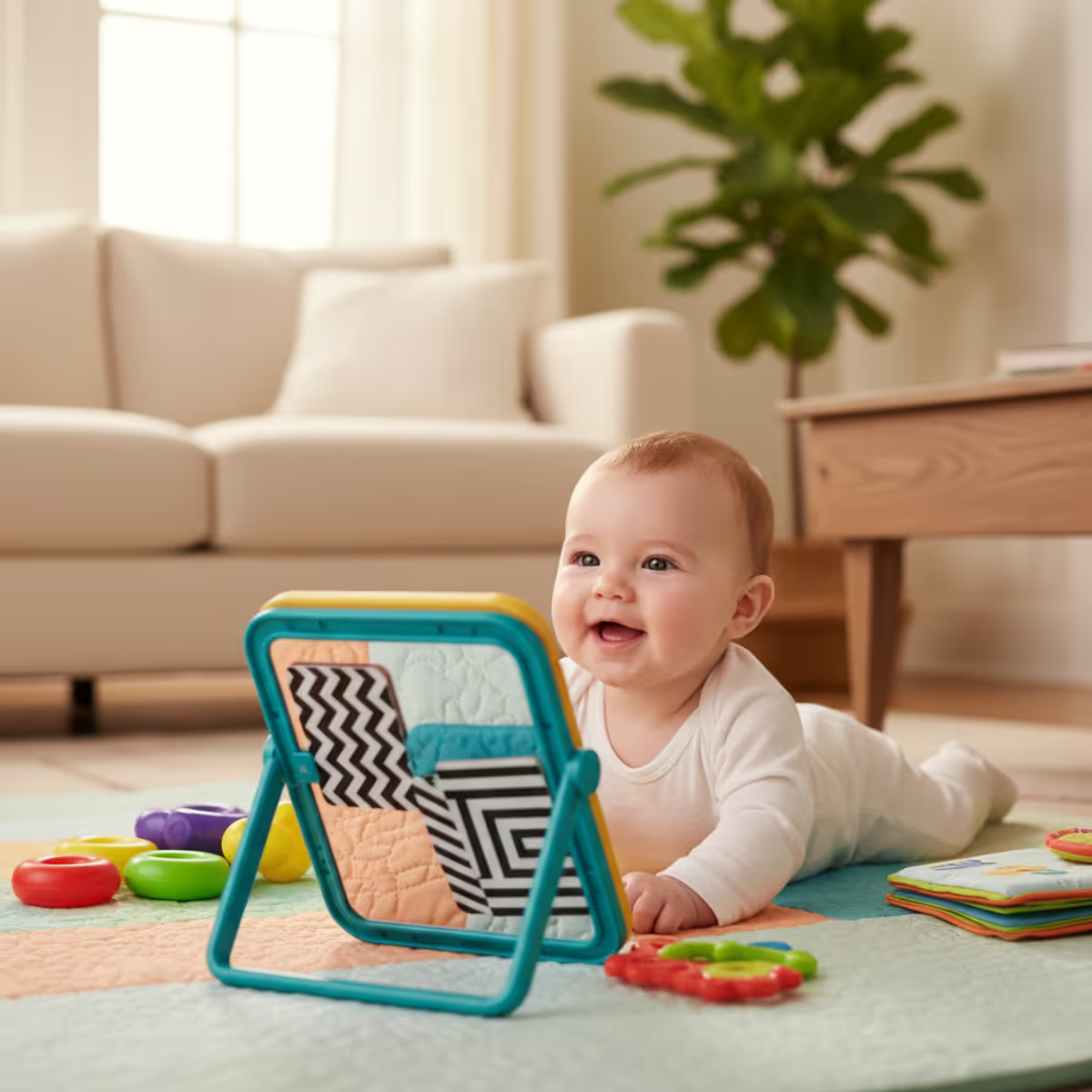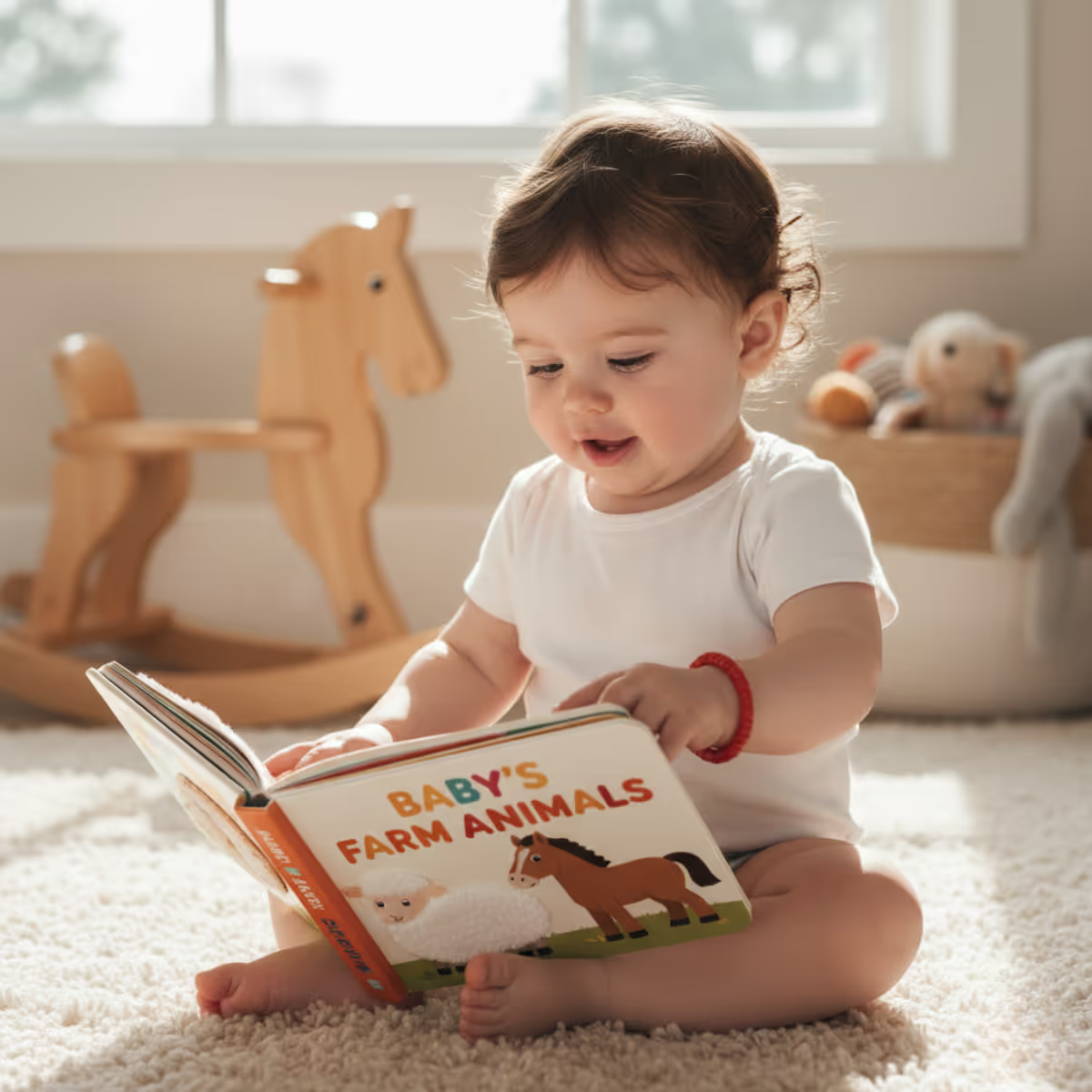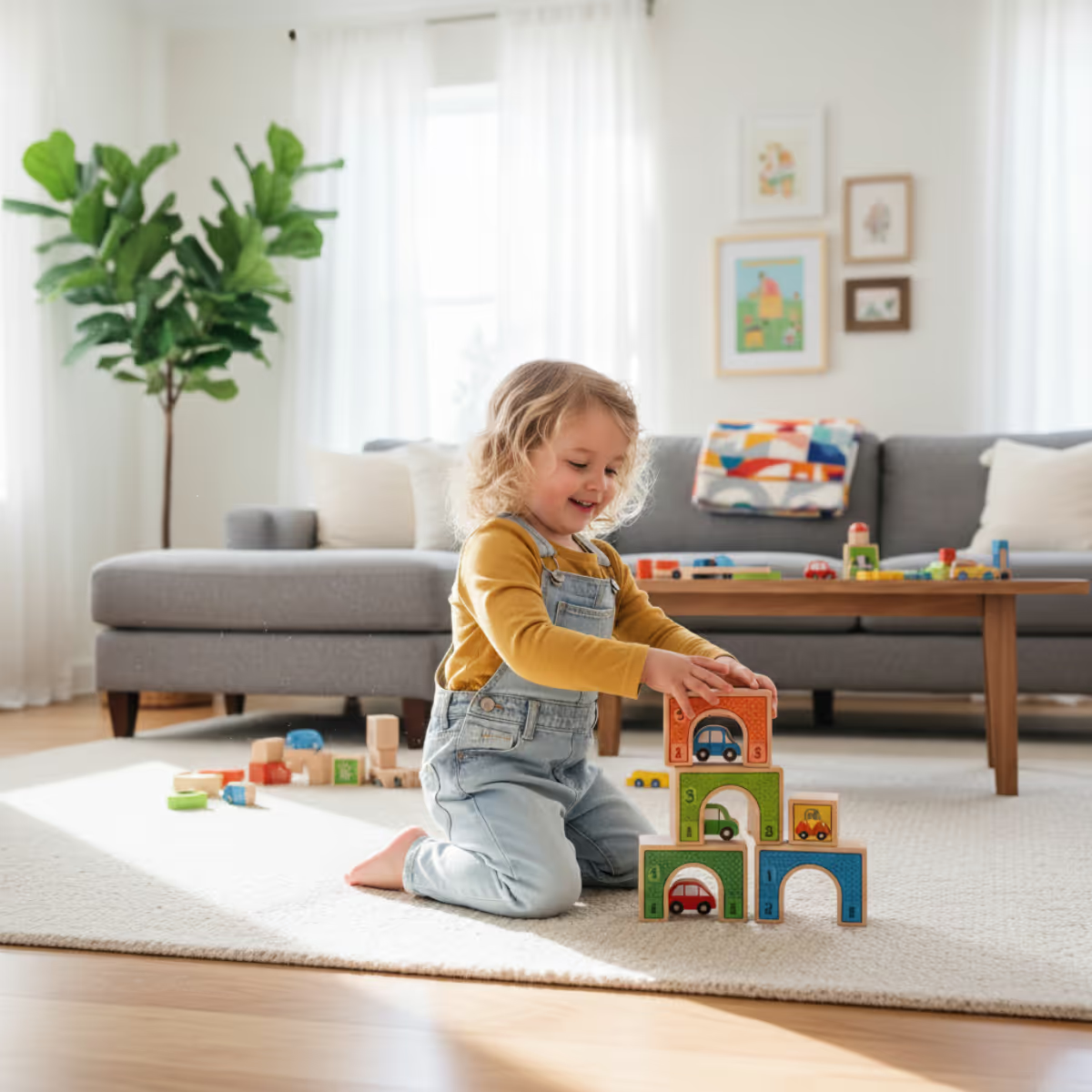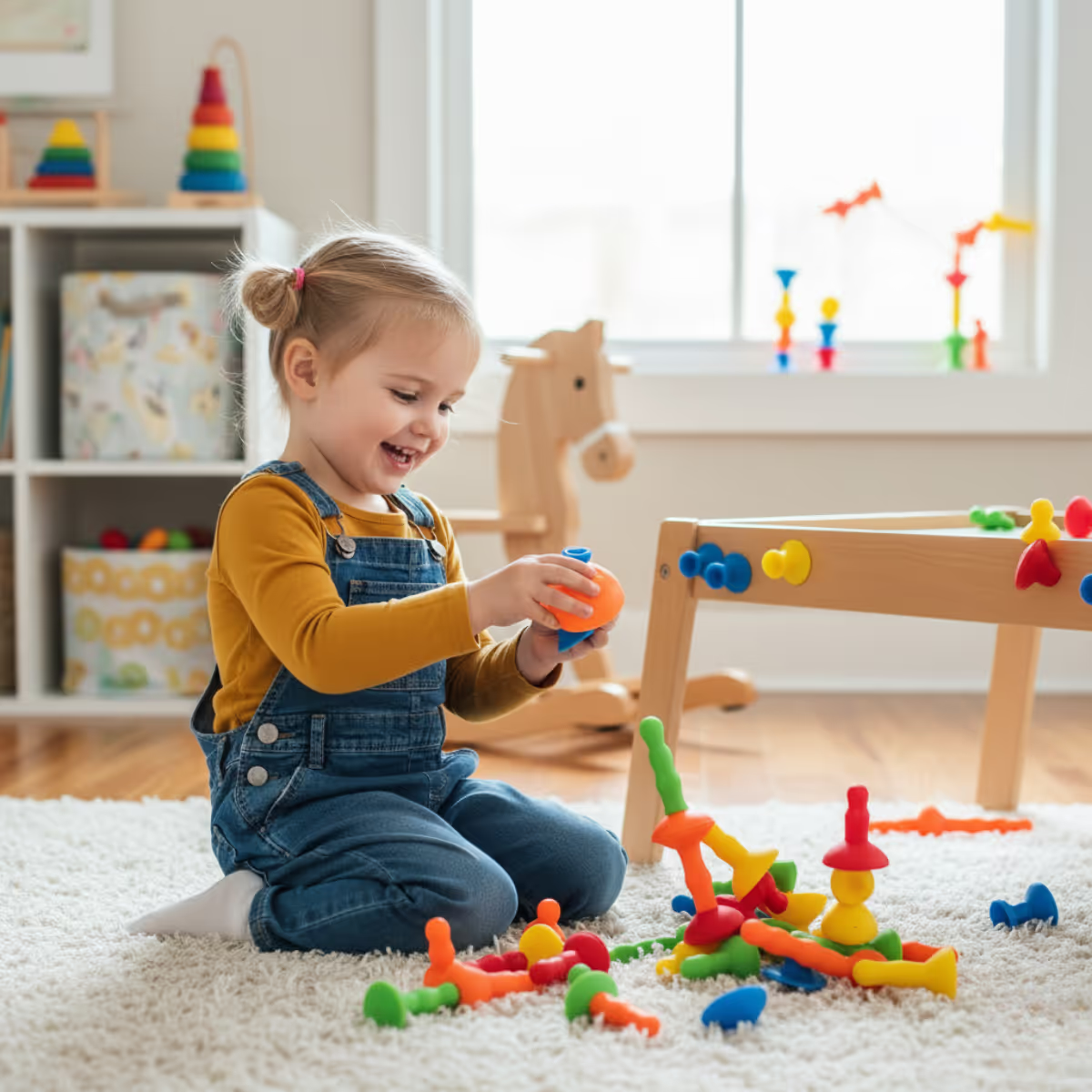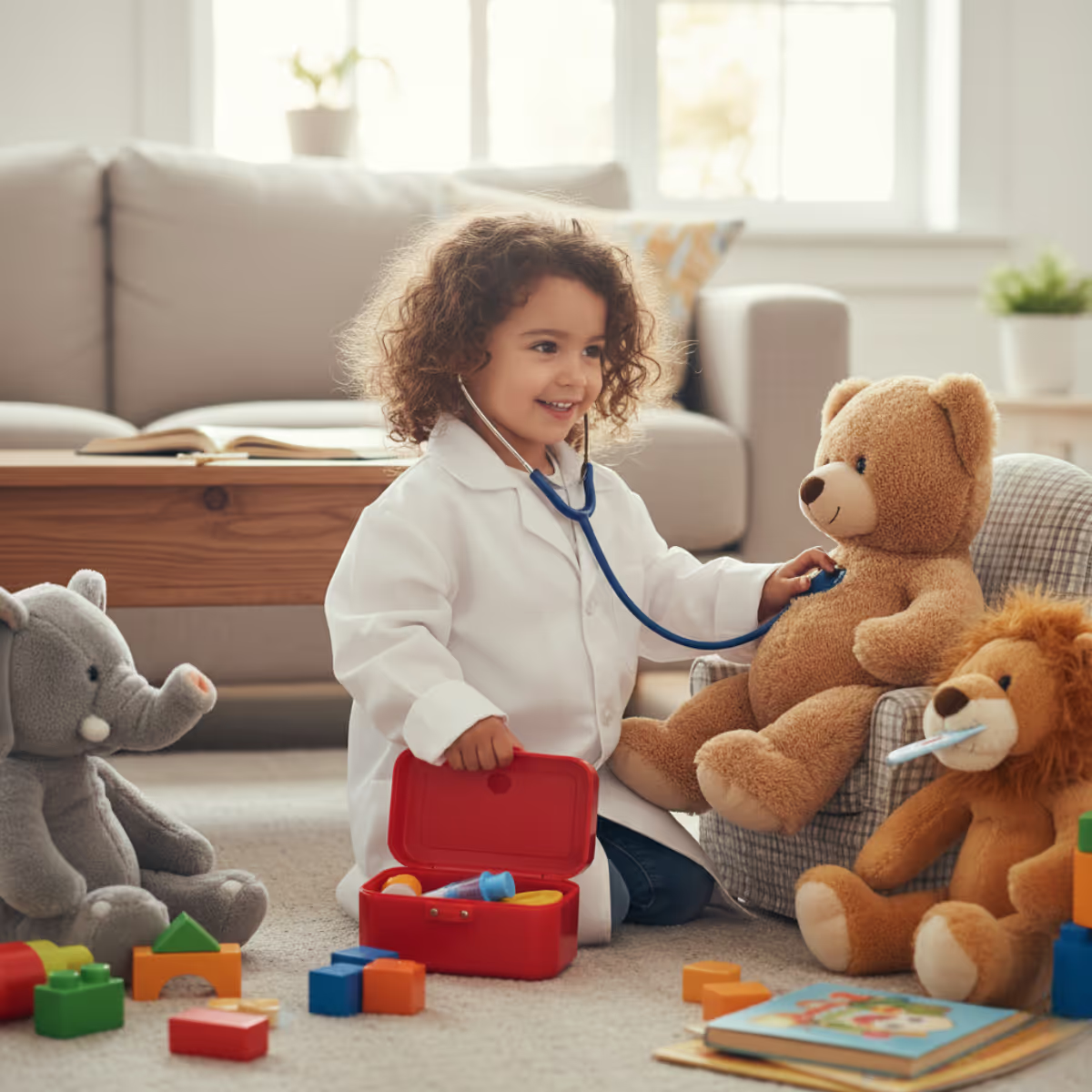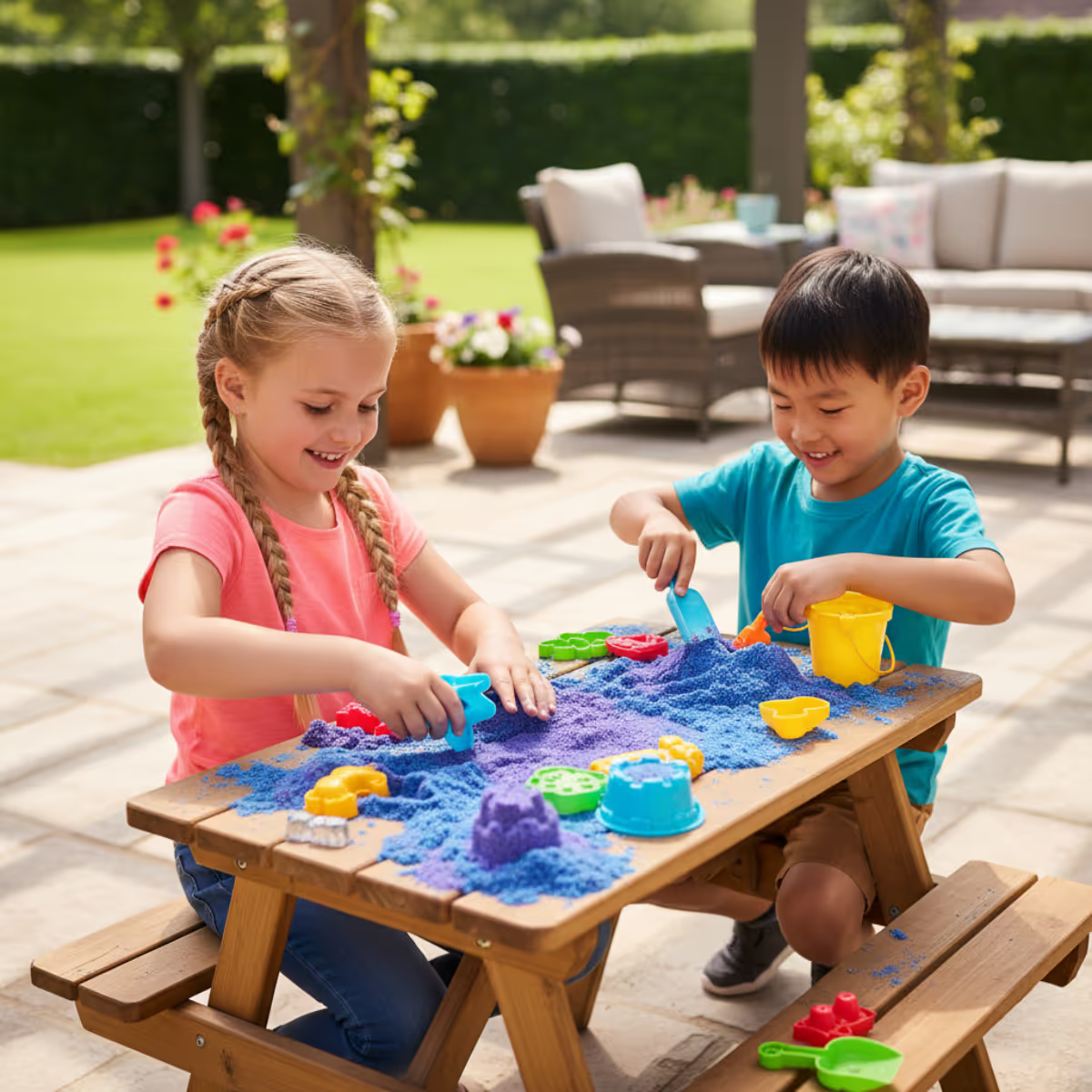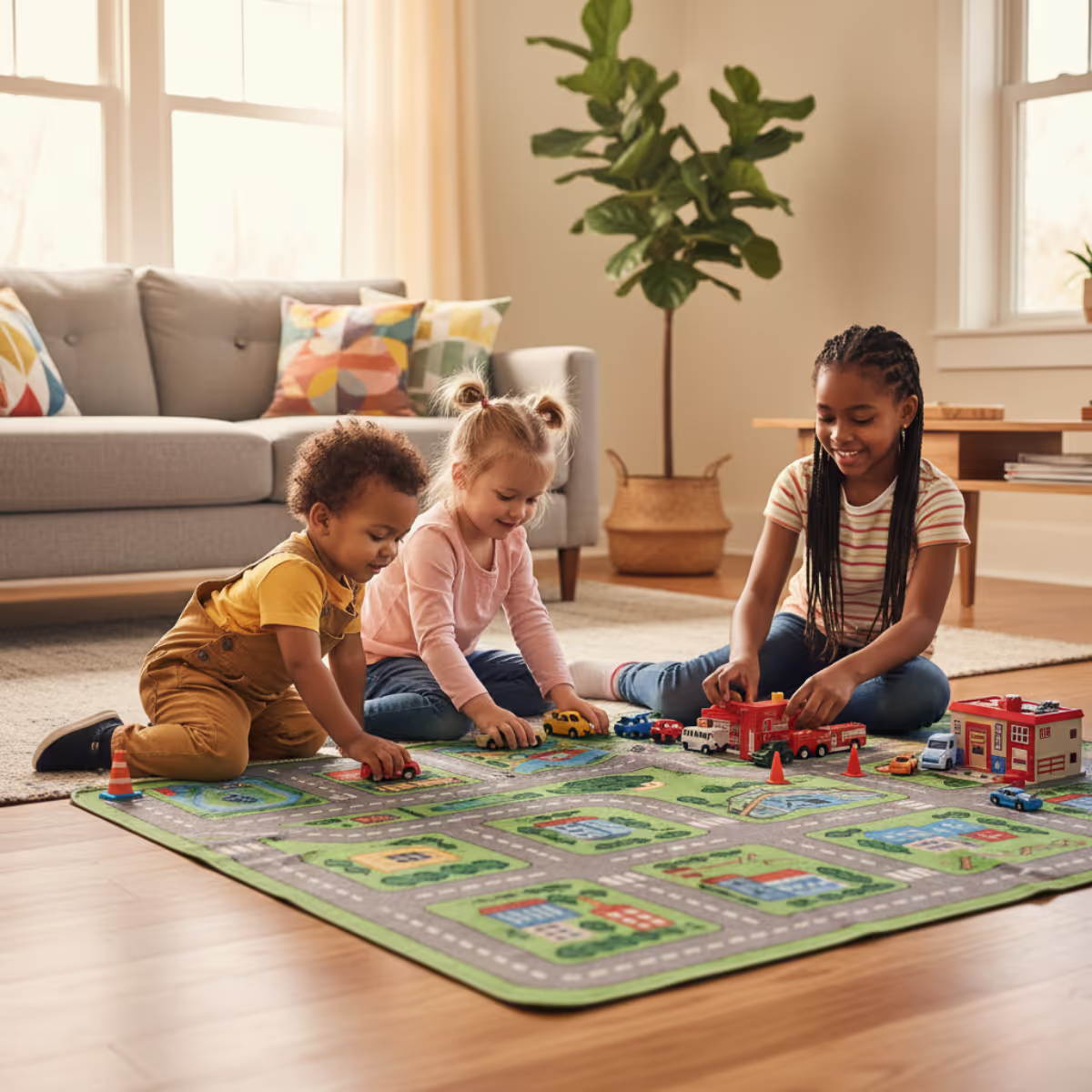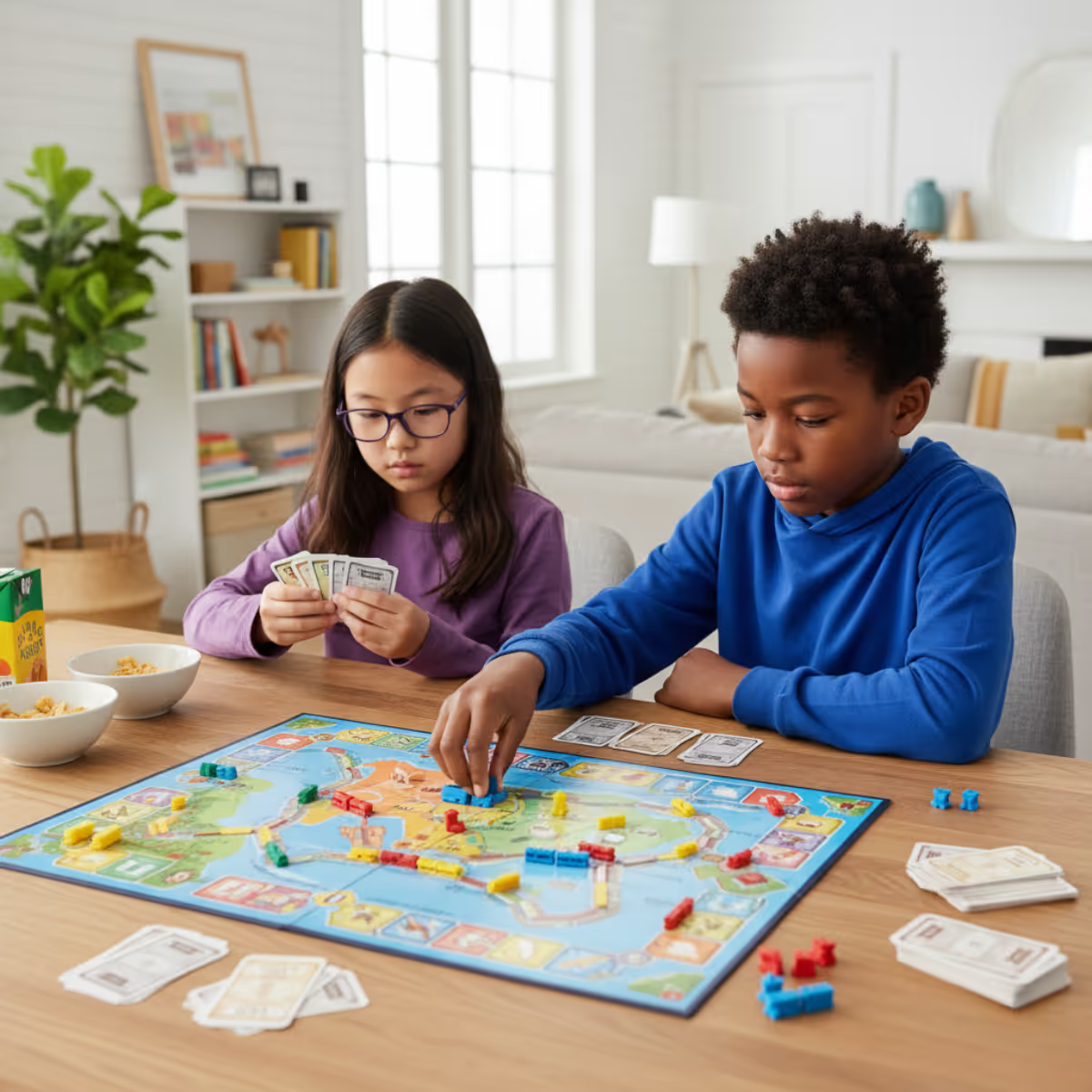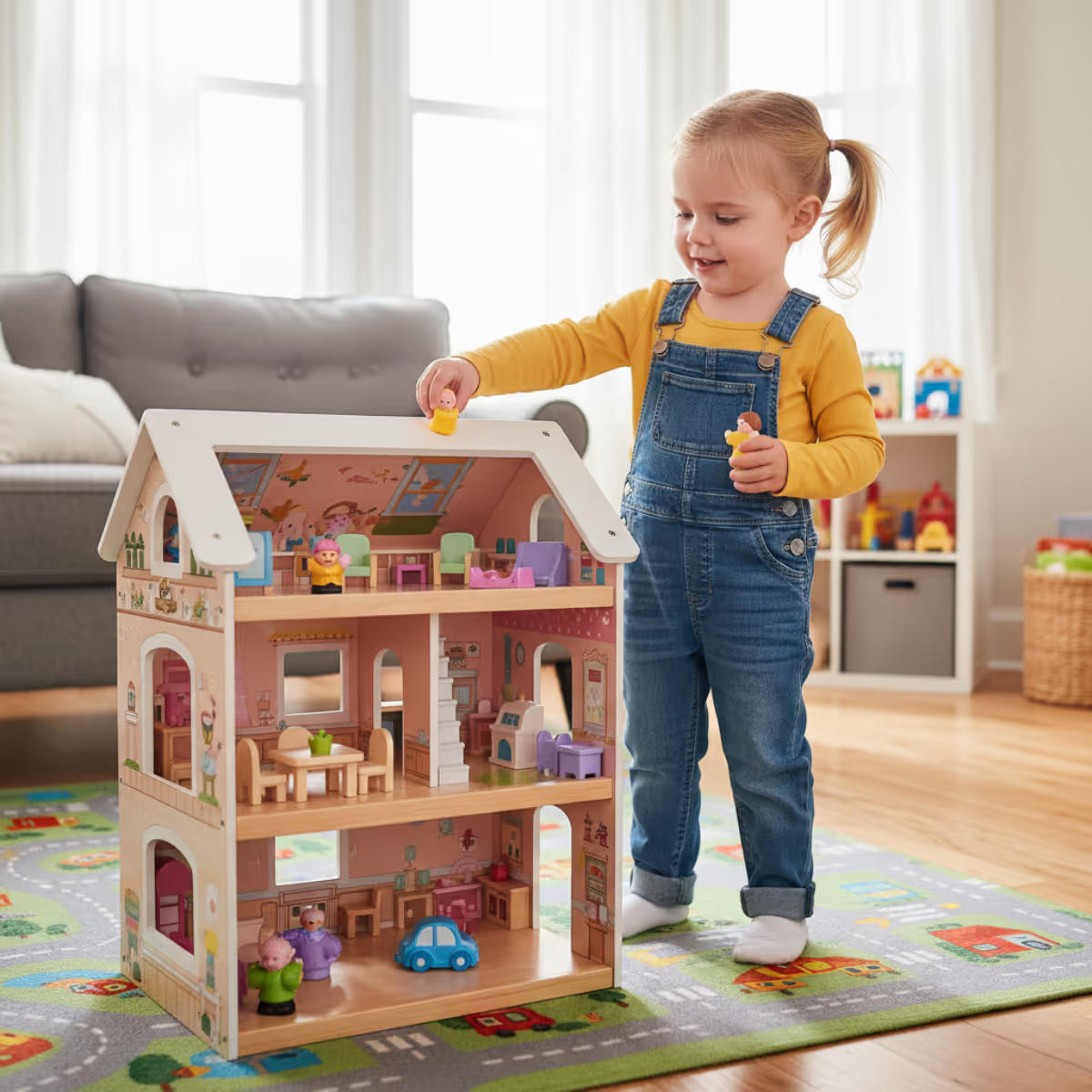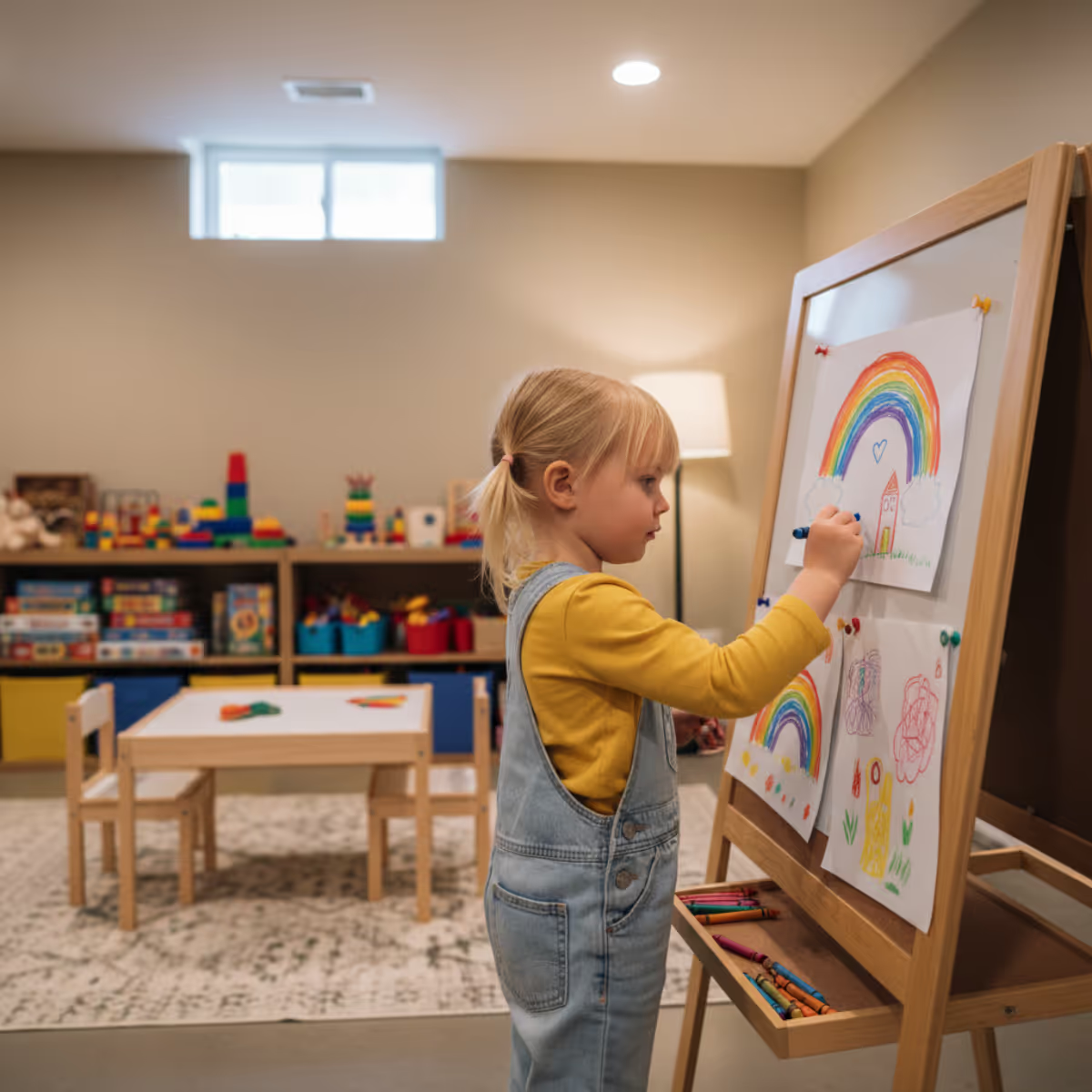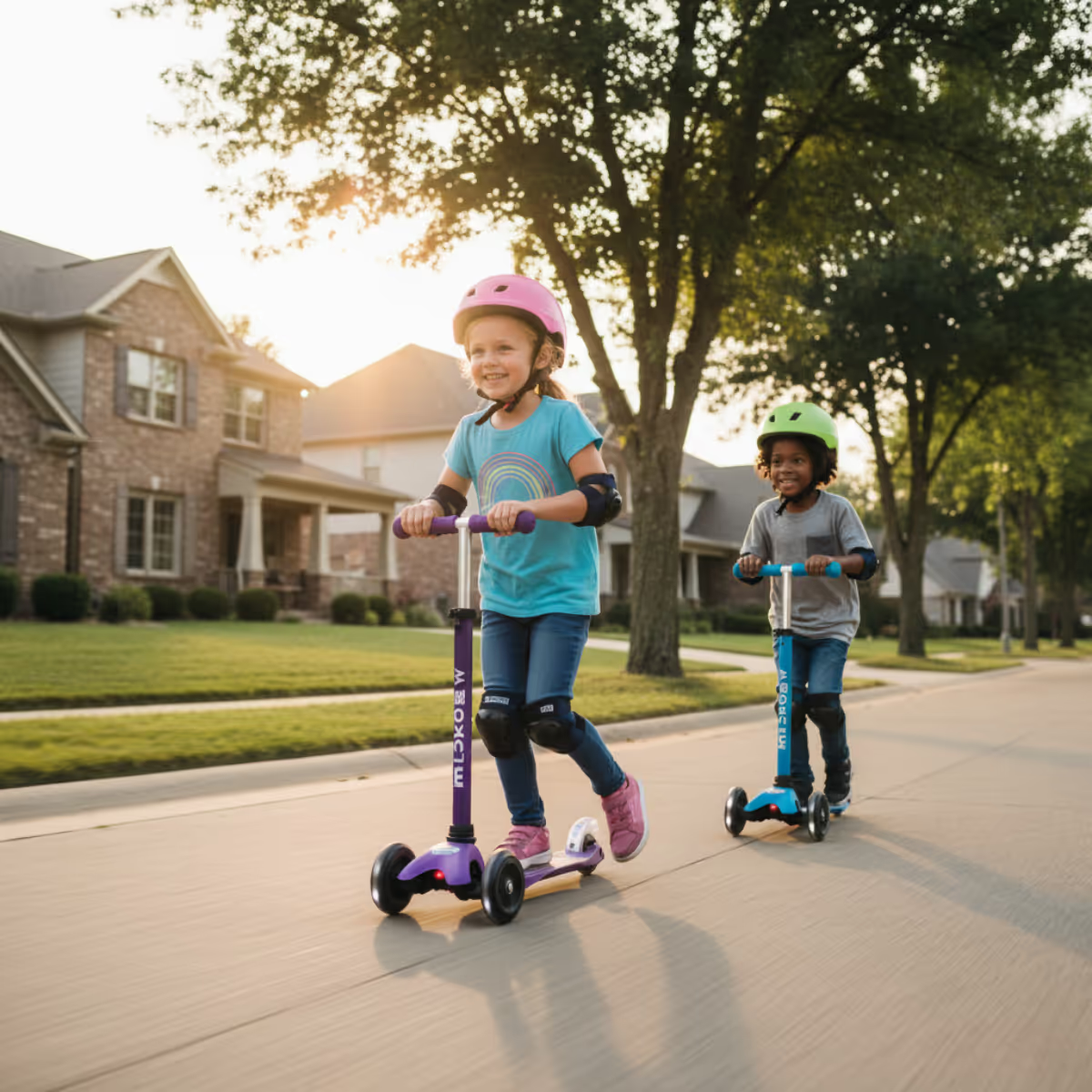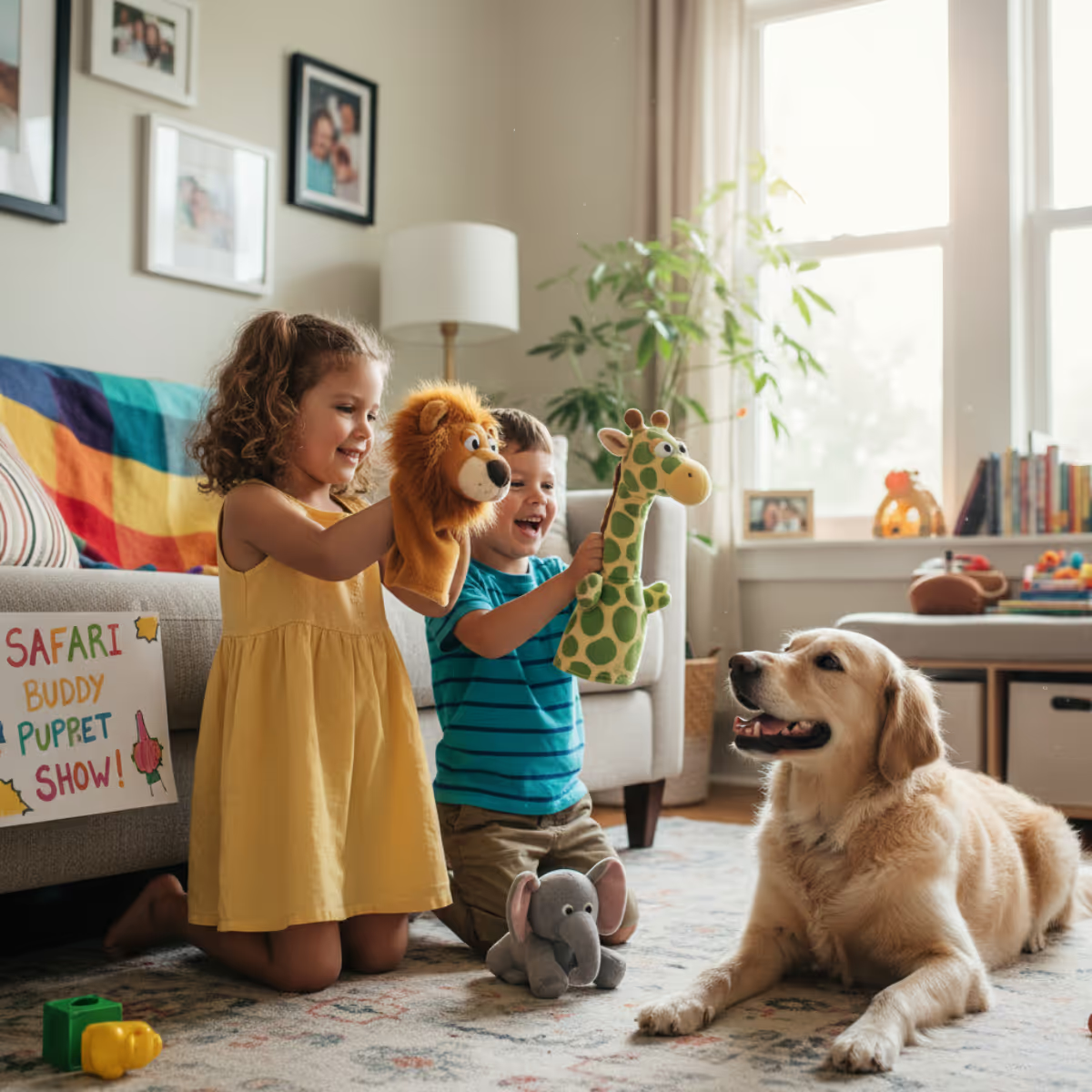Social-Emotional Skills
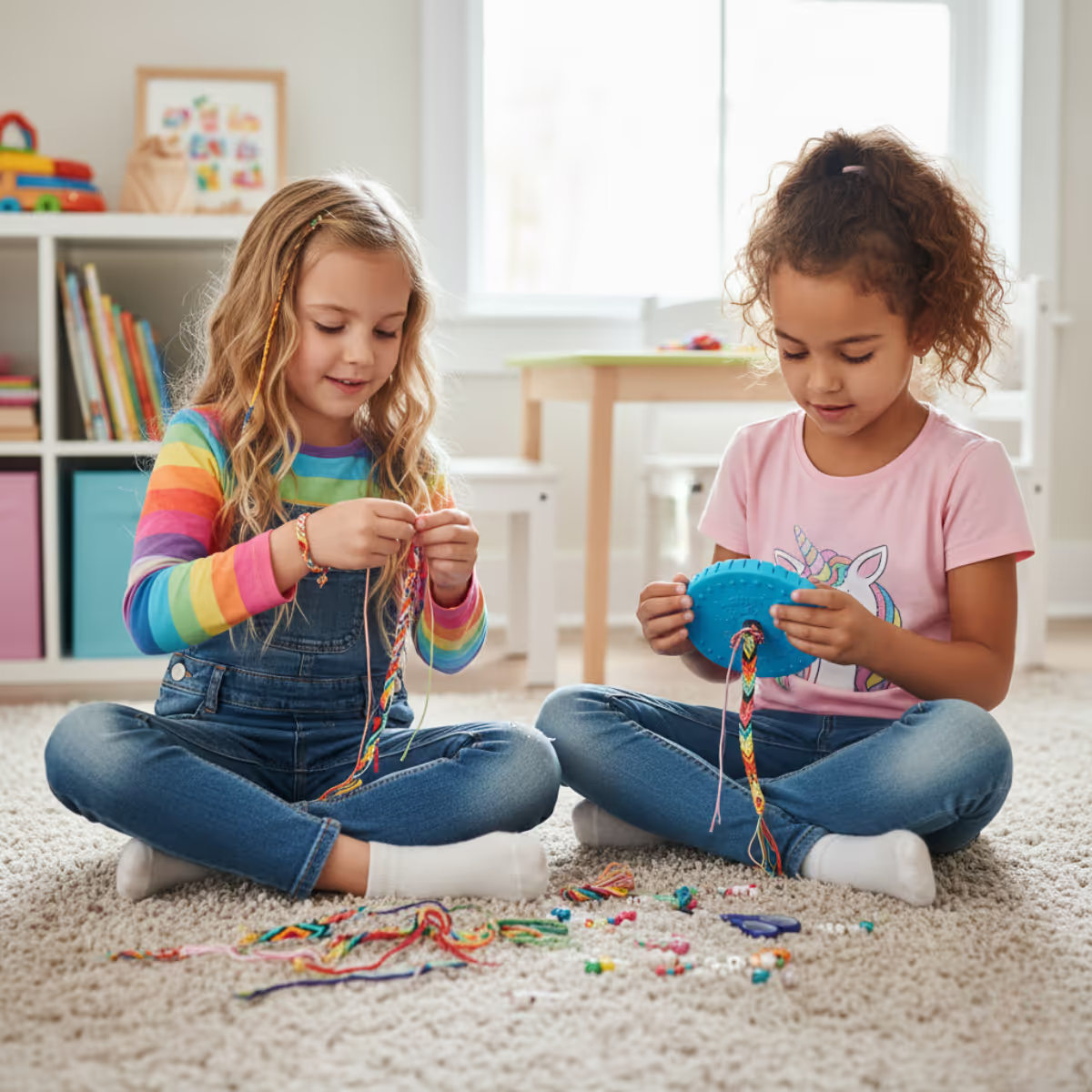
Why This Stage Matters
Social-emotional growth helps kids identify feelings, build friendships, and manage big emotions. Play gives children safe ways to practice empathy, cooperation, and resilience.
Key Developmental Milestones
Social-Emotional Skills

Why This Skill Matters
Social-emotional growth helps kids identify feelings, build friendships, and manage big emotions. Play gives children safe ways to practice empathy, cooperation, and resilience.
Milestones
- 1 yr: Explores textures, bangs toys
- 2 yrs: Enjoys messy play (water, sand)
- 3 yrs: Uses sensory tools (playdough, rice bins)
- 4 yrs: Begins sensory regulation (calming activities)
- 5-8 yrs: Explores more complex sensory experiences (crafts, tactile games)

EXPERT INSIGHT
"Play is where children learn about themselves and others. Toys that encourage sharing, cooperation, and pretend scenarios help kids practice empathy and resilience."
LINDY, SLP
.avif)
Complete Vet Pet Care Play Set
Recommended age:
3-6 years
This pretend play kit includes plush pets, food bowls, brushes, and accessories so kids can “feed, groom, and care” for their furry friends.
What kids learn through play:
Pretending with dolls encourages empathy, role-play, and understanding of daily routines. Kids learn perspective-taking and expression.
.avif)
Emotional Support Capybaras
Recommended age:
2-8 years
These ultra-soft, huggable plush capybaras are more than just cute — they’re designed to bring comfort, companionship, and calm.
What kids learn through play:
Stuffed animals give kids a safe outlet for big feelings. Caring their capybara fosters empathy and comfort seeking.

Mindsight ‘Breathing Buddha’
Recommended age:
2-8 years
Kids are drawn to the soft glow and rhythmic breathing. Watching the Buddha gently brighten and fade helps kids slow down and feel in control.
What kids learn through play:
As kids follow the light with their breath, they build awareness of their body, emotional regulation, and managing stress.
.avif)
My Emotions Dot Coloring & Dot-a-Dot Markers
Recommended age:
2-4 years
Kids love coloring — and these ones spark conversations about feelings. Each page is designed around an emotion face.
What kids learn through play:
Emotional vocabulary grows as kids link colors with feelings. Parents can ask, “Which crayon matches how you feel right now?”
.avif)
Spark & Wow Emotions Dominoes
Recommended age:
2-4 years
Dominoes become a lesson in recognizing feelings. Children match expressions while practicing turn-taking.
What kids learn through play:
Matching faces supports emotion recognition and empathy. Parents can add prompts like, “Tell me a time you felt like this.”
.avif)
Sweet Li’l Family Bendable Doll House Figurines
Recommended age:
3-5 years
Pretend family play builds empathy and perspective-taking. Children assign roles and act out routines they know.
What kids learn through play:
Role-play with dolls helps kids process real-life experiences, practice caring, and imagine how others feel.




